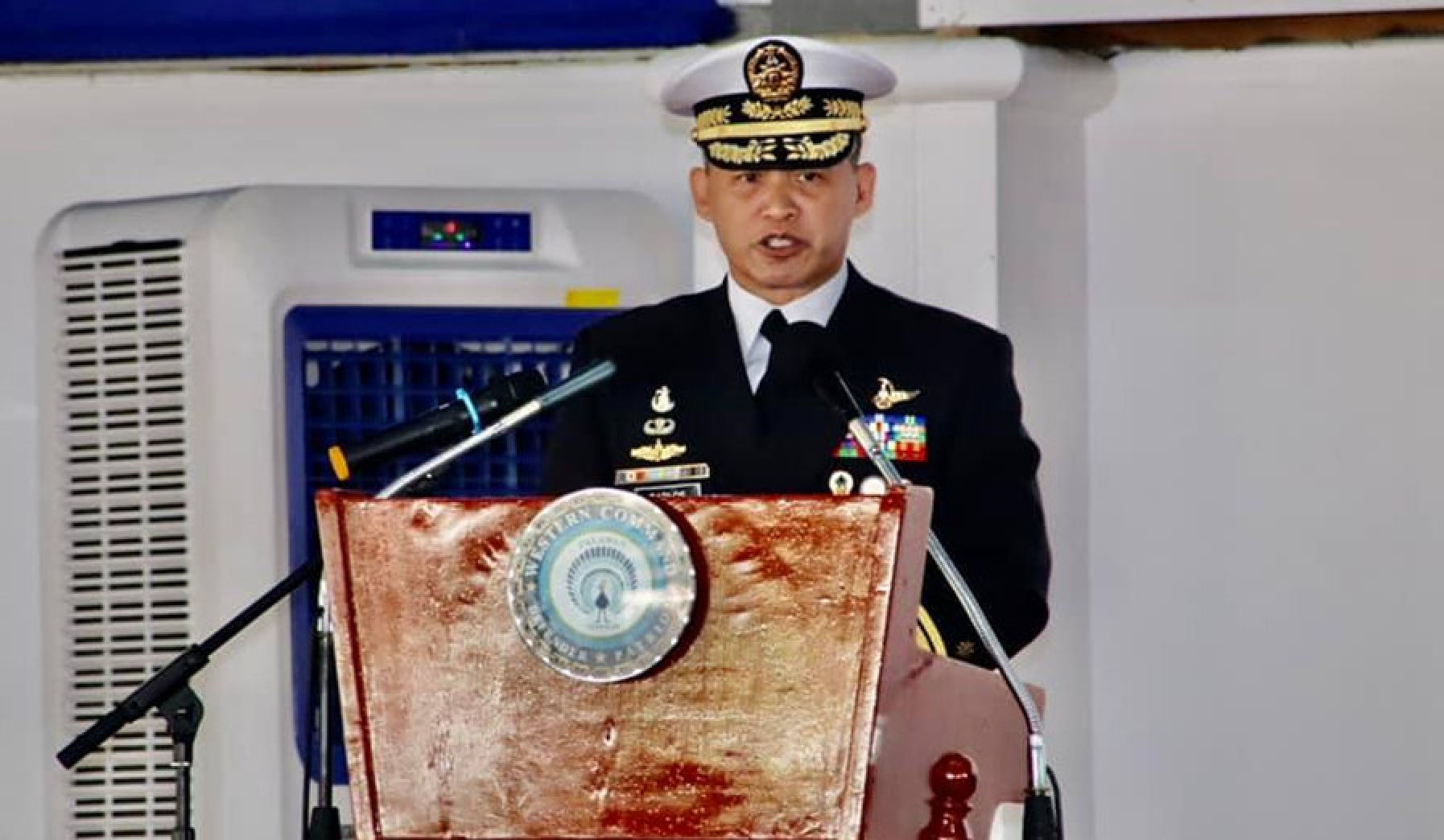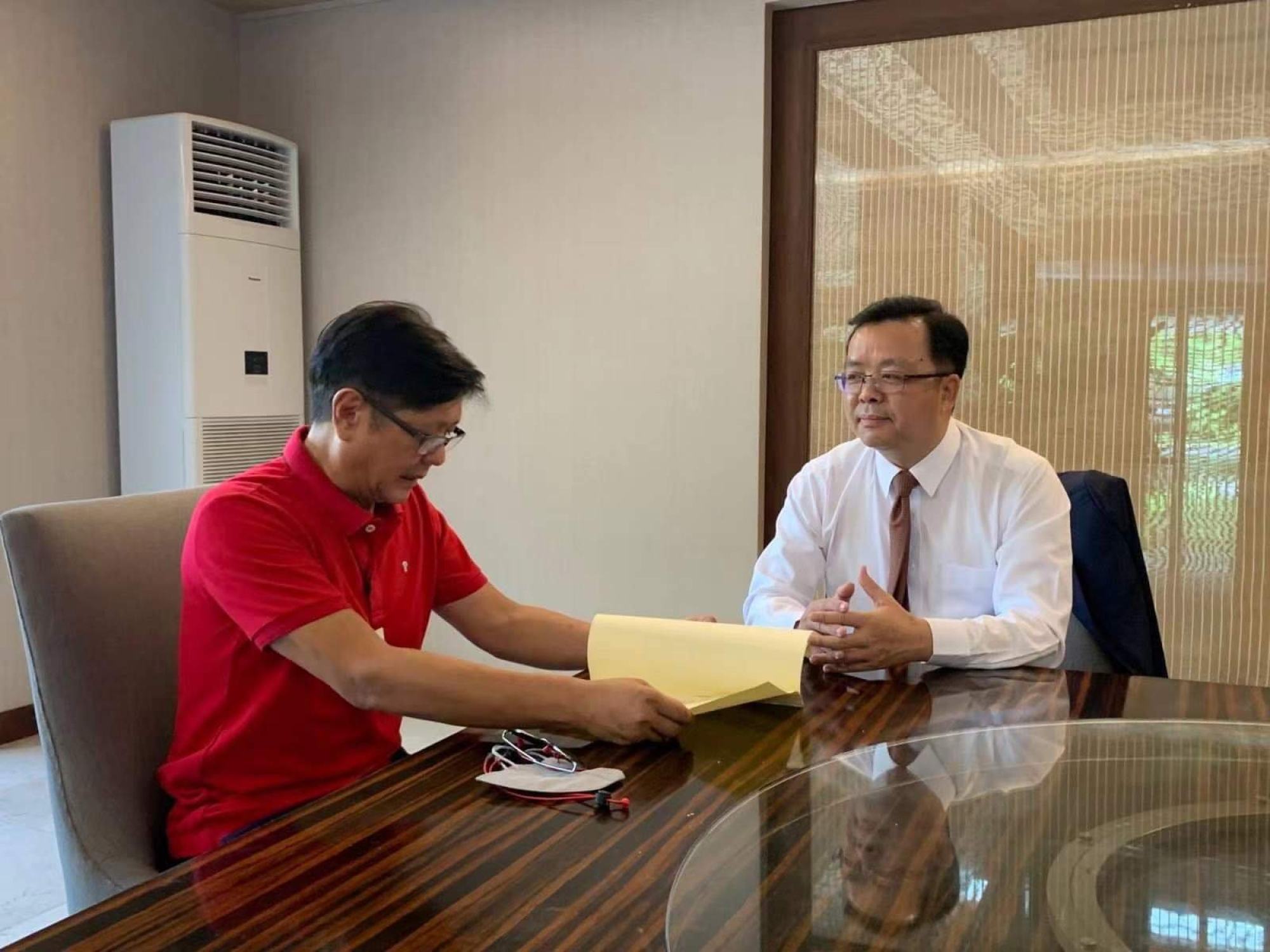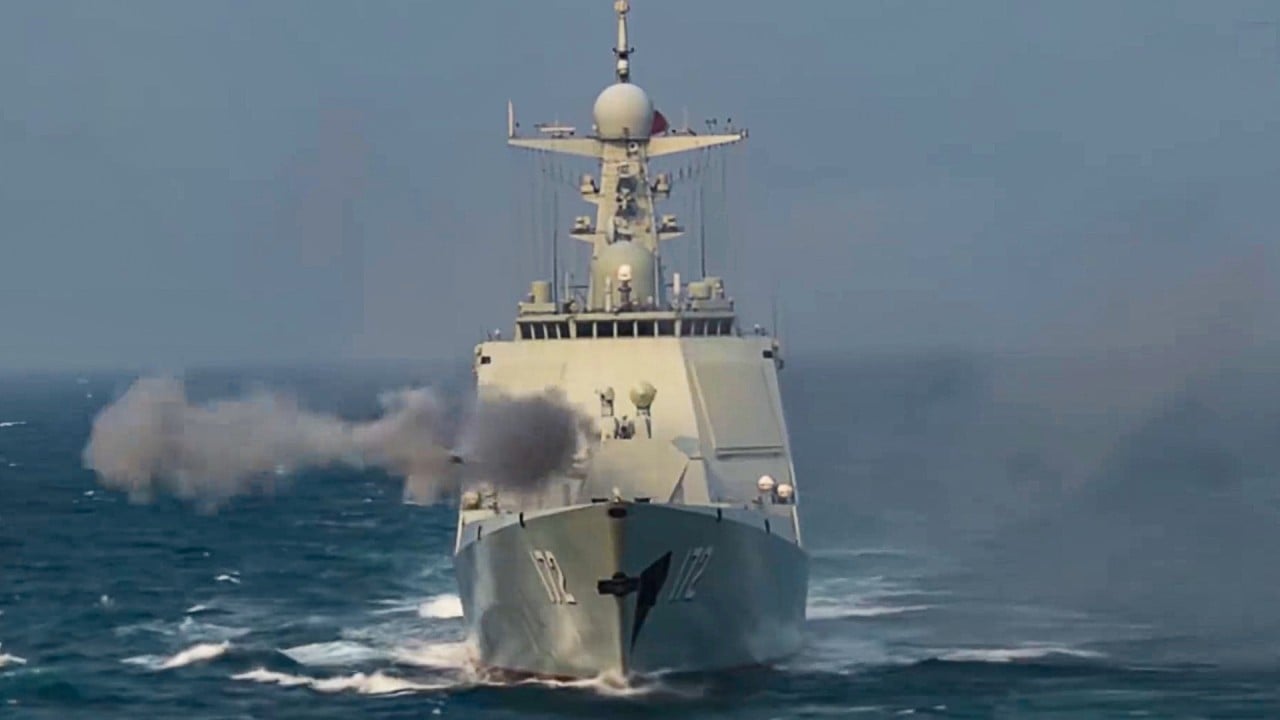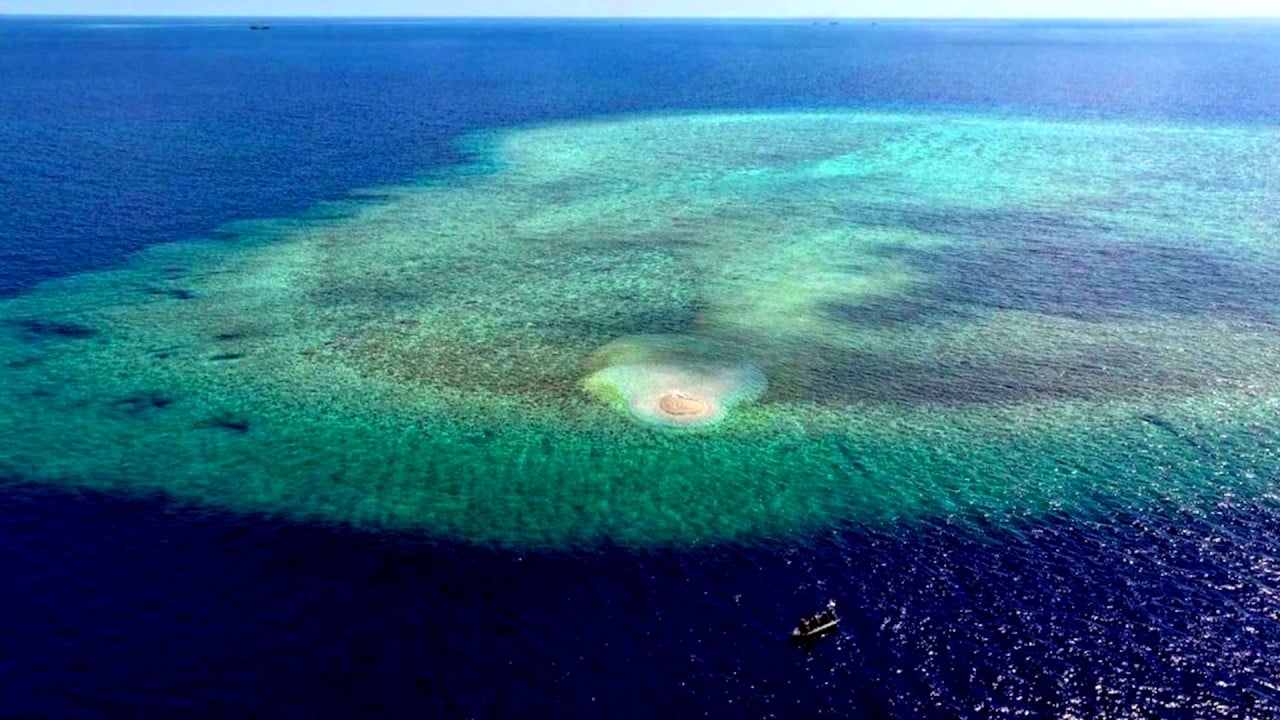
Philippines warns China of diplomatic consequences over alleged wiretapping of senior navy officer
- A senator claimed Chinese diplomats might be expelled if an investigation found they had violated the Philippines’ anti-wiretapping law
- Security experts said Manila should prepare for the potential fallout from such actions including retaliation against Filipinos working in China

Carlos is the head of the Philippines Navy’s Western Command, which oversees the country’s maritime interests in the West Philippine Sea – Manila’s term for the section of the South China Sea that defines its maritime territory and includes its exclusive economic zone.
On Wednesday, Senator Francis Tolentino filed the resolution to initiate an investigation into the alleged 12-minute phone call, in which Carlos supposedly agreed to Beijing’s protocols regarding resupply missions to the Philippines outpost on the Second Thomas Shoal, a reef among the contested Spratly Islands that lies within the Philippines’ exclusive economic zone.
The key point of the alleged deal is a “1+1” format for both sides, meaning Manila would only deploy one Philippine coastguard vessel and a resupply boat to the shoal, while China would only launch one coastguard ship and a fishing boat in response. At the same time, Manila would be required to notify Beijing two days in advance of any resupply missions – which could only deliver food and water – to the troops manning the outpost.
“It is regrettable that China is engaging in doubletalk, criticising the Philippines for alleged non-adherence to basic norms of international exchanges but has the audacity to wiretap while on Philippine soil,” Tolentino’s resolution reads.
Should the alleged wiretapping violation prove true, Tolentino said he would demand that China formally apologise to the Philippines and its officials waive their diplomatic immunity to face sanctions.
“We can declare them persona non grata … meaning we have to deport them. Or it can lead to the Department of Foreign affairs calling for the reduction in numbers in size of embassy personnel,” he said.
“What we want to find out is if there really was wiretapping involved. We’re not saying it would be an acknowledgement, an implied recognition, that there was indeed a new model, no. The mere fact that there was wiretapping, even if it were just ceremonial greetings–‘Good afternoon,’ ‘Ni hao’ – if you tapped it, that is a violation of the wiretapping law,” he explained.
He said an invitation had been sent to the Chinese embassy but there has been no confirmation if Ambassador Huang Xilian will show up at the inquiry.

Justice Secretary Jesus Crispin Remulla has also instructed the National Bureau of Investigation to conduct a thorough investigation into the alleged illegal wiretapping activities of Chinese diplomats.
While embassy officials enjoy diplomatic immunity under the Vienna Convention, according to Remulla, diplomats are still subject to Philippine laws and they are still responsible for illegal actions performed outside their official duties.
“Diplomatic immunity should never be used as a licence to exploit our country’s peace and harmony for selfish motives,” Remulla said in a statement released on Wednesday.
Edmund Tayao, a political analyst and professor at the San Beda Graduate School of Law in Manila, told the Week in Asia that Manila has been compromised by the Chinese.
“It shows how vulnerable we are and how aggressive China could be. Nevertheless, we cannot just always react after the fact. We have to have a comprehensive preventive plan starting with a strong and closely coordinated action by security agencies, especially intelligence services including working with local government units as they are the ones on the ground,” said Tayao, who is also the president and CEO of Political Economic Elemental Researchers and Strategists.
Asked about the implications to the country’s relations with China, Tayao said anything is possible given this move by Philippine officials.
“We should prepare and have comprehensive plans that deal with and manage the implications of these actions by the Philippine government. We should be ready to secure Filipinos in China even to a point of getting them home and redeploying them and or giving them jobs locally,” Tayao said.
“Our telecommunications infrastructure should also be carefully assessed and as much as possible reconfigured,” he added.
Manila Representative Bienvenido Abante said the alleged wiretapping highlighted the risks of allowing large numbers of Chinese nationals to live and work in the country.
“The Philippines has always opened its arms to foreign guests. But if our guests violate our laws, then they should be kicked out immediately and barred from coming back,” Abante said in a statement released last week.


